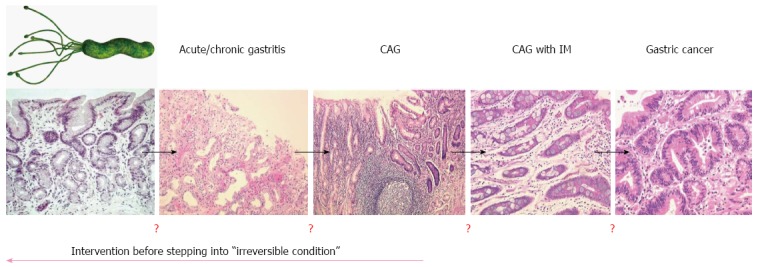Figure 1.

Point of no return in Helicobacter pylori infection. Helicobacter pylori (H. pylori) infection is responsible for acute and chronic gastritis, chronic atrophic gastritis, and intestinal metaplasia. The results of a few studies have shown that the eradication of H. pylori significantly reverted these gastric pathologies and promoted restoration of gastric function. H. pylori is also implicated in several extragastric manifestations including idiopathic thrombocytopenic purpura, iron deficiency anemia, atherosclerosis, and chronic urticaria. Because there are no biomarkers suggestive of a point of no return, the results of several large scale cohort studies continue to provide support for the strategy of H. pylori eradication in gastric cancer prevention.
